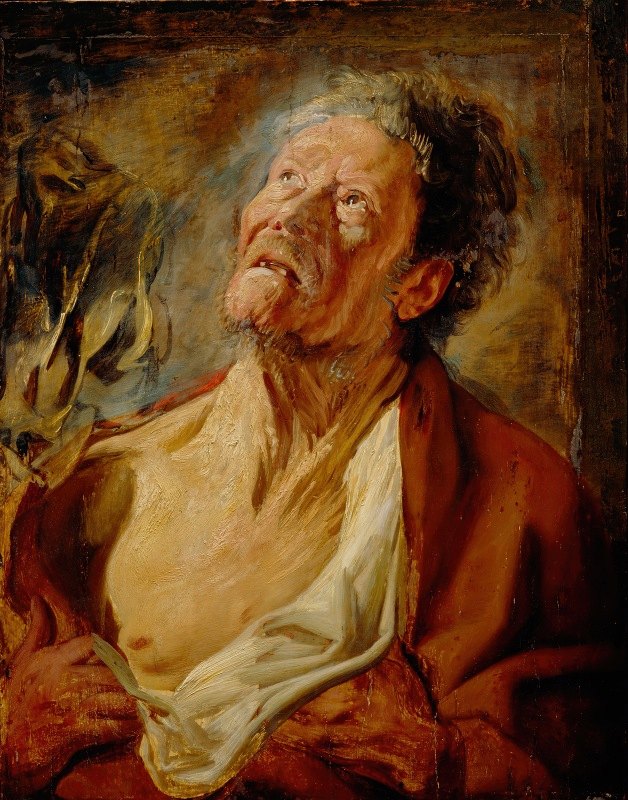
Chapter 18 (Saturday of the Second Week of Lent)
Then Bildad the Shuhite answered:
‘How long will you hunt for words?
Consider, and then we shall speak.
Why are we counted as cattle?
Why are we stupid in your sight?
You who tear yourself in your anger—
shall the earth be forsaken because of you,
or the rock be removed out of its place?
‘Surely the light of the wicked is put out,
and the flame of their fire does not shine.
The light is dark in their tent,
and the lamp above them is put out.
Their strong steps are shortened,
and their own schemes throw them down.
For they are thrust into a net by their own feet,
and they walk into a pitfall.
A trap seizes them by the heel;
a snare lays hold of them.
A rope is hid for them in the ground,
a trap for them in the path.
Terrors frighten them on every side,
and chase them at their heels.
Their strength is consumed by hunger,
and calamity is ready for their stumbling.
By disease their skin is consumed,
the firstborn of Death consumes their limbs.
They are torn from the tent in which they trusted,
and are brought to the king of terrors.
In their tents nothing remains;
sulphur is scattered upon their habitations.
Their roots dry up beneath,
and their branches wither above.
Their memory perishes from the earth,
and they have no name in the street.
They are thrust from light into darkness,
and driven out of the world.
They have no offspring or descendant among their people,
and no survivor where they used to live.
They of the west are appalled at their fate,
and horror seizes those of the east.
Surely such are the dwellings of the ungodly,
such is the place of those who do not know God.’
Commentary
The good things of this life can be ours for good or evil; they are to be rated accordingly. Temporal blessings, then, it is sometimes good to enjoy, but sometimes not; sometimes it is good to despise them, but sometimes it is not. It is good indeed to have them when they conduce to the fear of God; but equally it can be good to despise them, when that is done for the sake of the glory that comes from Almighty God himself, and not from men. (St. Fulgentius of Ruspe, Epistolae).
Musical Selection
Cf. How lovely is your dwelling place, O Lord of hosts! My soul longs, indeed it faints for the courts of the Lord; my heart and my flesh sing for joy to the living God. Even the sparrow finds a home, and the swallow a nest for herself, where she may lay her young, at your altars, O Lord of hosts, my King and my God. Happy are those who live in your house, ever singing your praise. Selah Happy are those whose strength is in you, in whose heart are the highways to Zion. As they go through the valley of Baca they make it a place of springs; the early rain also covers it with pools. They go from strength to strength; the God of gods will be seen in Zion. O Lord God of hosts, hear my prayer; give ear, O God of Jacob! Selah Behold our shield, O God; look on the face of your anointed. For a day in your courts is better than a thousand elsewhere. I would rather be a doorkeeper in the house of my God than live in the tents of wickedness. For the Lord God is a sun and shield; he bestows favour and honour. No good thing does the Lord withhold from those who walk uprightly. O Lord of hosts, happy is everyone who trusts in you. (Psalm 84)
Collect
Lord,
by your healing gift of grace
you share with us the things of heaven
while we are yet on earth.
Guide us, we pray, in this our present life
and lead us to that everlasting light in which you dwell.
We ask this through our Lord Jesus Christ, your Son,
who lives and reigns with you in the unity of the Holy Spirit,
God for ever and ever. Amen.